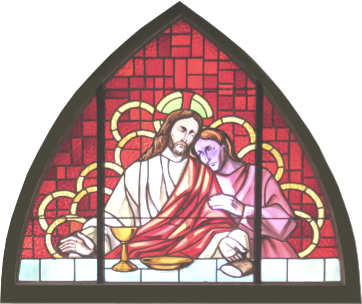Season of Lent
The annual observance of Lent is the special season of grace for the ascent to the holy mountain of Easter. Through its twofold theme of repentance and baptism, the season of Lent disposes the faithful to celebrate the paschal mystery. The faithful, listening more intently to the Word of God and devoting themselves to prayer, are prepared for the Solemnity of Easter through a spirit of repentance to renew their baptismal promises.
Ash Wednesday
On the Wednesday before the First Sunday of Lent the faithful, by receiving ashes, enter upon the season appointed for spiritual purification. This sign of penance, biblical in origin and preserved among the customs of the Church until our own day, express the human condition as affected by sin. In this sign we outwardly profess our desire for forgiveness before God and thereby, prompted by the hope that the Lord is kind and compassionate, patient and bounding in mercy, express our desire for inward conversion. This sign is also the beginning of the journey of conversion that will reach its goal in the celebration of the sacrament of reconciliation during the days leading to Easter.
Eucharistic Fast
Before receiving Holy Communion one should abstain for at least one hour from all food and drink except water and medicine. Those who are advanced in age or suffer from some illness, as well as those who care for them, may receive the Holy Eucharist even if they have taken some food during the preceding hour. (Huels, The Pastoral Companion, p97; The Church’s Code of Canon Law, 919)
Days of Fast & Abstinence
The penitential days and times in the universal Church are Ash Wednesday, Fridays and Good Friday during the season of Lent. Abstinence from eating meat or from some other food as determined by the Episcopal Conference is to be observed on Ash Wednesday and Good Friday. Abstinence from eating meat on other Fridays of the year is recommended, but not required. Also recommended on all Fridays of the year is prayer and penance (especially eating less food), and almsgiving for the sake of world peace. (Huels, The Pastoral Companion, p333ff; The Church’s Code of Canon Law, 1251)
The requirement to fast prescribes that only one full meal a day be taken. Two lighter meals are permitted to maintain strength according to each one’s needs. Eating between meals is not permitted, but liquids, including milk and fruit juices are allowed. The requirement of abstinence forbids the eating of meat, but eggs, milk products and condiments made from meat can be eaten. Fish and all cold blooded animals may be eaten (Paul VI, Apostolic Constitution Paenitemini, Feb 17, 1996, AAS 58 (1996), n.III; CLD 6:676-78).
Ages for Fast & Abstinence
Those bound to abstain are those who have completed their fourteenth (14th) year and older. The requirement of fasting binds all from the age of majority up to the beginning of their sixtieth (60th) year, that is between the ages of 18 and 59 inclusive. Pastors and parents should see to it that even those who, due to their young age, are not bound to the law of fast or abstinence are nevertheless educated in a genuine sense of penance. (Huels, The Pastoral Companion, p334ff; The Church’s Code of Canon Law, 1252)
